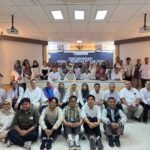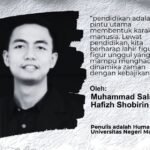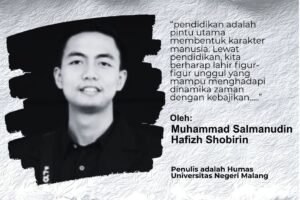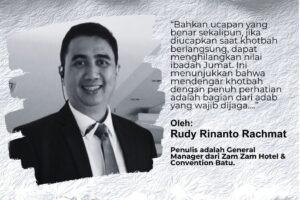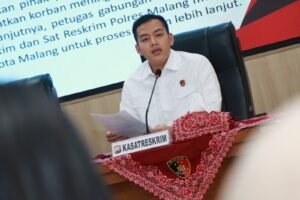
THE FIRST journal is entitled “The Urgency of Protecting Netizens in Freedom of Speech on Social Media” by Grandis Ayuning Priyanto and Martinus Sardi (2020). This journal is interesting to analyze because this journal provides an opinion that protection is needed for freedom of opinion on social media because it is said in this journal that there is ambiguity in the 1945 Constitution which is said to protect and guarantee the right to opinion for all society.
This is said to have ambiguity, especially after the birth of the ITE Law, which increasingly created big question marks in society. Freedom of opinion is declared a right for everyone, but the existence of social media means that too many opinions are expressed which sometimes contain abuse and insults towards certain parties.
However, again, it is said that freedom of opinion is everyone’s freedom. However, it is unfortunate that with the existence of the ITE Law, many people use it incorrectly, such as in several cases where many people sue and attack each other with the alibi of violating the ITE Law.
Therefore, this journal also states that the author feels that there is no balance in freedom of opinion since the birth of the ITE Law and this regulation is felt to be inconsistent with the 1945 Constitution. Because with the birth of the ITE Law there have been many attacks on each other and also reporting on other people just on different grounds. prayers and views with him. And with this the author states that with the existence of the ITE Law, a person’s right to express their opinion has begun to be threatened.
The author also said that the government must also carry out a campaign to educate the public in carrying out communication in cyberspace to eliminate doubts and fears about speaking out in public life, especially on social media. Therefore, protection for internet users can be properly regulated according to the expectations of the government and society.
This is in contrast to the second journal with the title “The Rights and Restrictions of Freedom of Speech in Social Media and the Digital Era” by Elnajj Keysha Nabila and Andina Elok Puri Maharani (2023) which stated in their journal that expressing opinions is the human right of all humans. And it is also stated in the journal that what is said to be human rights are everything that every individual has within himself and no other individual can take these things away from him.
This journal says that with the current digital era, a democratic nature has emerged which then has an impact on information that flows freely on the internet. In this case, the Indonesian government made a policy containing freedom of opinion on social media as stated in the 1945 Constitution of the Republic of Indonesia Article 28E & 28J, Law Article 1 Paragraph (1) Number 9 of 1998, and Article 23 Paragraph (2) Number 39 of 1999.
The author feels that there is a lot of hate speech on social media and there are no restrictions on freedom of opinion on social media. The author in his writing demands that there be limits and sanctions that must be given to social media users in expressing their opinions so that they understand that there are laws that limit them and so that their use of social media can be more effective. It is also hoped that this demand for limits on opinion can limit arbitrary actions by irresponsible parties on social media.
Then there is a third journal with the title “Blogging down a dictatorship: Human rights, citizen journalists and the right to communicate in Zimbabwe” by Last Moyo (2011) which discusses journalist radicalism which is increasingly strengthened by the existence of the internet which not only provides a safe haven. safe for bloggers, but also accepting of their innovative social practices in producing and sharing information resulting from digitalization.
This article argues that in Zimbabwe the right to communicate via the internet (both form and content) has arguably been taken over and monopolized by bloggers whose legitimacy is based on cooperation with civil society. In this journal, the author demands radicalism in both the form and content of the news conveyed by alternative media and citizen journalism.
This is said to be necessary because of the political acts of repression and violence carried out by the country. This journal states that citizen journalism and civil media can act as alternative media that are bolder in expressing their opinions and function to create understanding not only about collective membership and the fate of communities facing crises, but also about active citizenship characterized by critical public debate and action for positive social change. (***)
Nama : Rohmawan Mujadah Wijayanta
NIM : 235120407141022
Universitas : Universitas Brawijaya
Fakultas : Ilmu Sosial dan Ilmu Politik
Jurusan : Hubungan Internasional

